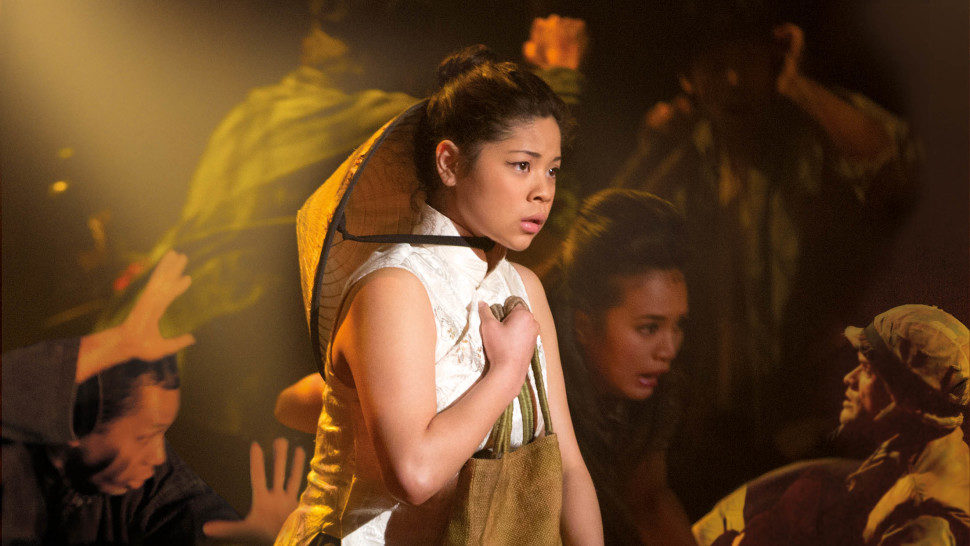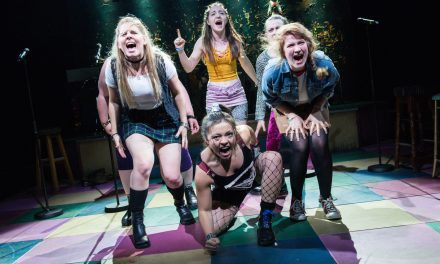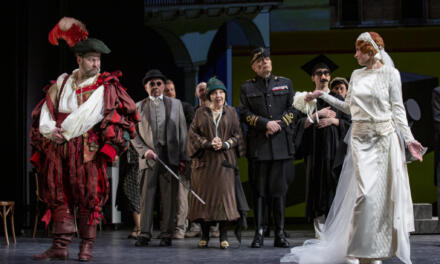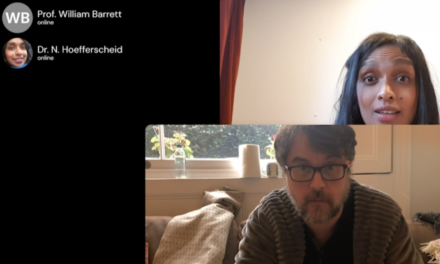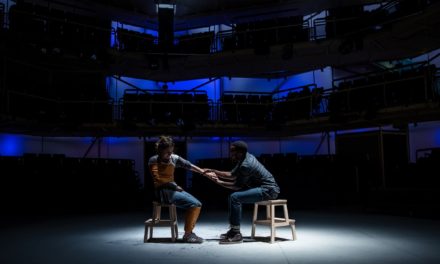Over the past year and a half, May Tran (writer, student and professional procrastinator of Vietnamese descent) has been inundated with PR for two professional and sixteen-hundred amateur productions of Miss Saigon. The following piece has been cobbled together from segments of the largely incomprehensible fury essays she wrote during her frequent and violent rage blackouts.
In 1989, Miss Saigon premiered in London to rave reviews and in 1991, it opened on Broadway. It won Tonys and Laurence Olivier Awards for lead cast members Lea Salonga and Jonathan Pryce respectively. In 2014, the show made a wildly successful comeback with a sold-out West End revival, starring Eve Noblezada, a young actress of Filipino descent, and looks to make its Broadway revival this year. In 2016, I saw no less than 6 casting calls for amateur productions. In short, it’s coming back with a vengeance and it’s fucking everywhere. It’s a spectacle, with the West End revival boasting an amazing set, talented cast and well-polished choreography. One production in Georgia hired a historically accurate helicopter to land as the show opened. The music is wonderfully composed, the story compelling. But the issue isn’t whether Miss Saigon is a good show or not, it’s whether a Vietnamese story should be told more responsibly and with the voices of Vietnamese people.
For those reading who are blessed with no knowledge of what I’m talking about, I, May Tran, musical theatre enthusiast and angry, Asian girl, will inform you. Miss Saigon is a musical set in 1970s Saigon during the Vietnam War. It tells the story of Kim, a 17-year-old Vietnamese sex worker who, after spending a night with him, falls in love with an American soldier named Chris Scott. It’s a story of love, betrayal and sacrifice. It is also racist, misogynistic, Orientalist fantasy.
It’s with the misrepresentation of Vietnamese attitudes and characters that the flaws in Miss Saigon arise. The representation of Asian men on stage and screen has always had a checkered past and Miss Saigon is no exception. The Engineer, a main character whose role was originated by Jonathan Pryce, is a soulless pimp and sleazy entrepreneur who exists to subjugate the Vietnamese women who have been forced into prostitution, and performing show-stopping musical numbers to distract from human trafficking. Thuy is an incestuous cad who defects to the Việt Cộng, allows his soldiers to beat Kim when she doesn’t agree to marry him and then attempts to murder her child. Dude is like, next level evil and both men add to the long line of dehumanised and vilified Asian men, especially next to the musical’s heroic, white, American G.I. — Chris Scott.
In this lies another problematic part of the narrative – the white saviour. An overused narrative trope that still occurs with startling regularity, the white saviour is usually a white man accepting the terrible burden of having to save those of non-white backgrounds. It’s a reflection of the collective sense of guilt that has arisen in white consumers of culture. The trope serves as an escapist fantasy in which white consumers can shed this guilt and experience healing without having to have a significant conversation about racial identity or tension. In short, it’s a shitty attempt at reaching across race-barriers while only really catering to white audiences. It’s on this trope that Miss Saigon builds its foundation, Kim waits for Chris to come back to Vietnam and rescue her and their son from a terrible life in Vietnam. While back in Atlanta, Chris’ friend from the war, John, is working at an aid organisation whose purpose is to connect the children left behind in Vietnam with their American fathers. Their morality works to mask the damaging effects of the U.S. military presence in Vietnam; it allows the audience to forgive them for contributing the sexual trafficking of underage women. It’s a narrative that reveals the insulting lack of insight and research put into writing this musical.
The facts come into question again when it is revealed that Kim is betrothed to Thuy, her cousin. This is meant to elicit discomfort in the audience and further demonise Thuy but only proves how little Schonberg and Boublil cared about writing our truth. Family units in Vietnamese culture are incredibly tight-knit, you tend to be in contact with most of your cousins and incest of direct bloodlines up to third cousins is very much illegal*. So it seems unlikely that a young Vietnamese woman of 13 would be promised to a relative.
In a desperate attempt to guarantee a good life for her son, Kim kills herself in the final act of the play. This is transposed directly from Madama Butterfly, where Japanese protagonist Cio-cio- san’s suicide is similarly presented – as an act of ultimate sacrifice. A mother, giving up her own life so that her child can live a seemingly better life. But to come to this conclusion you need to be already convinced that a life with his living mother could not trump one without her, raised in a white family in America. Because what are Asian lives worth next to the American Dream?
When asked about the controversy surrounding the musical, Lea Salonga, who originated the role of Kim, said “The minute that any production of that show comes up, Asian actors are going to be employed. If they’re equity actors, they’re going to get equity weeks. It means they get health insurance.” And hell, she’s right. One of the only redeeming features of Miss Saigon is that it can create paid work for Asian performers, though very rarely Vietnamese performers. As an early career artist, I understand the implications of making money vs. making a statement. The former means you betray your principles for a moment, you shut up and be docile and hope and hope and hope that the cheque at the end of the rainbow is worth it; the latter means you are seen as difficult – a ‘diva’, alienating the network you’ve spent time building, you don’t get the job, you can’t pay your rent.
I am endlessly supportive of my fellow Asian performers getting work. But the idea that we must invalidate our heritage a little longer, allow ourselves to be exploited a little further for our careers, our pay-slip, our health-care, has never struck me as good enough. Why should the entertainment of white audiences force Asian performers to beg for scraps – racist, misogynistic scraps – while nuanced roles seemingly written for us are whitewashed?
However, Miss Saigon is far from guiltless in this case. When the musical debuted in 1989, Jonathan Pryce, a white Welshman, originated the role of The Engineer, a Vietnamese-French character and Keith Burns, another white man, originated the role of Thuy, also Vietnamese. Both wore horrifying eye prostheses to look ‘more Asian’ and despite their use of yellowface, the musical was a success. Though the practice of yellowface was abandoned in following mainstream productions, it proves that the original creators of Miss Saigon did not care about the damage that it would cause. It set a precedent that yellow face was okay and late last year, Roo Theatre in Shellharbour, NSW put on a production with a largely white cast to little criticism, proving again that people are willing to exploit Asian stories to the detriment of Asian people.
2016 saw a huge movement against the whitewashing of Asian roles: social movement #StarringJohnCho which went viral by lampooning the lack of Asian leads in Hollywood; Tilda Swinton’s Doctor Strange debacle; Scarlett Johansson casting as Major Motoko Kusanagi or Emma Stone’s as Allison Ng spurred Asian activists to rally against this trend and demand better. So when Miss Saigon casts actors of Asian descent, it seems like a small mercy, it seems like a relief. One look at the Hollywood Diversity Report is enough to tell that there isn’t an excess of Asian representation on screen or stage and so any representation at all feels like a gift.
Now I’ll be honest and admit that I used to love Miss Saigon; it was among one of the pieces of work that would push me into a career in the arts industry. That’s what representation on the screen and stage does — it galvanizes young people of colour and allows us the belief that we too can have a place in an industry that rarely favours us. As I grew older and became more aware of my identity politics and started becoming more comfortable in my own yellow skin, I realised that Miss Saigon is a story told of Vietnamese people but not by Vietnamese people or with Vietnamese people. It is just one of many in a long trend of Asian-inspired works that co-opts our mythology, history and beliefs that never seem to benefit us.
See, representation is a low bar. No one’s praising Long Duk Dong or Leslie Chow. What we need is good, nuanced representation, the kind that Miss Saigon does not offer. We need to start turning to Asian creators and performers when we want Asian stories to be told. We need to be allowed control of our own narrative.
Now the uptick in Australian productions of Miss Saigon largely boils down to the success of the West End revival and hype surrounded the Broadway revival. It’s about ticket sales. It’s about money. But the history and pain of my people will not be exploited for the entertainment of white audiences or the monetary benefit of white producers. Not anymore.
There was a suggestion made for a grassroots movement where a group of hyper-vigilant activists would follow the people who bought tickets to the show and ruin their enjoyment of Vietnamese cuisine, slapping bánh mì thịt out of their hands, tipping over bowls of phở, distracting them so they soaked their rice paper just slightly too long so it would tear when they went to wrap their rolls. Guerrilla cuisine activism. But that was vetoed due to logistical reasons.
However, there is a very real campaign against the production of this musical, particularly the upcoming show put on by Packemin Productions with an all white creative team. Too often we view these issues through the lens of free speech, uncensored art or individual choice. I want you to know that this is a smokescreen to detract from the real argument, that the desire and choice to boycott this musical is not a campaign of censorship. It’s one of education. In it, we hope to make a statement that entertainment which exploits the stories of the Vietnamese diaspora and those still in Vietnam will not profit in this day and age. We need as many people as possible to spread the word on twitter, facebook and the ‘gram with the hashtag #notphoyourentertainment – share this article, follow the campaign on facebook. I’ll be keeping you posted on that page as well as through Moonlight Feminists.
*note: I am a second generation Vietnamese immigrant, I did not live through the Vietnam War and have never been a Vietnamese citizen. the attitudes and views and historical inaccuracies I wrote about have been gleaned from my parents and older Vietnamese folk who were alive during the time in which the musical was set. all comments have been fact checked but if I have made any mistakes, I would love to open up a discussion and can be reached at m.tran623@gmail.com
This article was originally posted on Moonlight Feminists. Reposted with permission.
This post was written by the author in their personal capacity.The opinions expressed in this article are the author’s own and do not reflect the view of The Theatre Times, their staff or collaborators.
This post was written by May Tran.
The views expressed here belong to the author and do not necessarily reflect our views and opinions.

